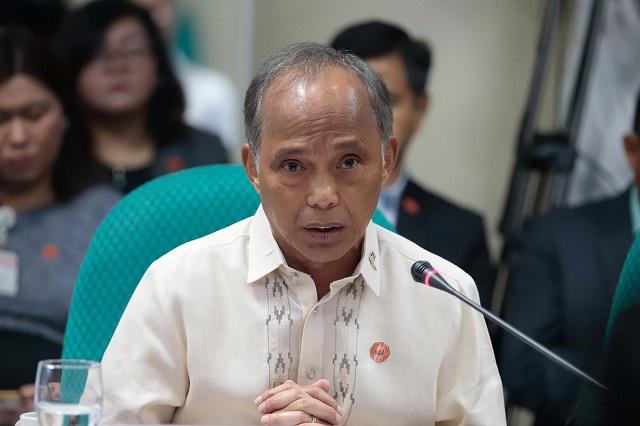DOE: Resumption of WPS oil activities won’t affect PHL-China joint exploration talks

The Philippines’ move to allow the resumption of oil exploration activities in the West Philippine Sea will not affect the ongoing talks between Manila and Beijing on the joint cooperation on oil and gas development, Energy Secretary Alfonso Cusi said Friday.
In a virtual press briefing, Cusi said President Rodrigo Duterte’s green-light to lift the moratorium on petroleum-related activities in the disputed waters will not affect the memorandum of understanding (MOU) inked by the Philippines and China in November 2018.
Under the MOU, both Chinese and Philippine governments agreed to establish an intergovernmental joint steering committee to look into possible energy cooperation.
The committee — to be co-chaired by the foreign ministries and co-vice chaired by the energy ministries — "will be responsible for negotiating and agreeing the cooperation arrangements in maritime areas to which they will apply and deciding the number of working groups to be established and for which part of the cooperation area each working group is established.”
“That will still support the joint development because that will pave the way for those interested companies to join the licensees to participate in the exploration activities,” Cusi said, referring on the lifting of the oil exploration ban.
“It is in good faith because it does not affect the MOU. It will not stop the joint development activities that we might arrive at with China,” the Energy chief said.
Under the MOU, each working group that will look into a possible exploration deal between the Philippines and China "will consist of representatives from enterprises authorized by the two governments."
The enterprises include the China National Offshore Oil Corporation and the Philippine National Oil Company-Exploration Corporation.
Cusi earlier said that the lifting of the moratorium was arrived at in “good faith” and with “full regard of the ongoing negotiations between the Philippines and China, and Forum Ltd. and the China National Offshore Corp. (CNOOC).”
The Energy department has already issued a “Resume-to-Work” to the Service Contractors (SC) doing petroleum-related activities in the areas of SC 59, 72, and 75 in the West Philippine Sea.
The activities there were suspended on the ground of “Force Majeure” due to the WPS dispute.
The SC 59 in West Balabac, southwest of Palawan is operated by state-run Philippine National Oil Company-Exploration Corp. (PNOC-EC).
The SC 72 in the Reed Bank, meanwhile, is held by London-listed Forum Energy Ltd.
Pangilinan-led PXP Energy Corp. holds the SC 75 in northwest Palawan.
In 2015, the DOE suspended all drilling and exploration works in the West Philippine Sea, particularly in the area covered by Service Contract (SC) 72 in the Reed Bank, citing a force majeure as the site is the subject of a territorial dispute between the Philippines and China.
China aggressively claims almost the entire South China, parts of which overlaps with the Philippines’ exclusive economic zone.
Duterte temporarily set aside the 2016 ruling of The Hague-based Permanent Court of Arbitration that invalidated China’s excessive claims in the South China Sea in order to forge stronger trade and economic ties with China even as he promised to raise the decision at a proper time during his term which ends in June 2022.
In September this year, however, the President invoked the country’s arbitral victory in 2016 against China's massive claims in the South China Sea in his first speech before the United Nations General Assembly.
Cusi also emphasized that the lifting of the ban on oil exploration activities in the West Philippines was a “unilateral” decision and counterparts in China were not informed prior to the announcement.
The Energy chief said the Philippines will “stand up” for its rights, in the event that China protests the resumption of petroleum activities in the disputed territory.—AOL, GMA News



